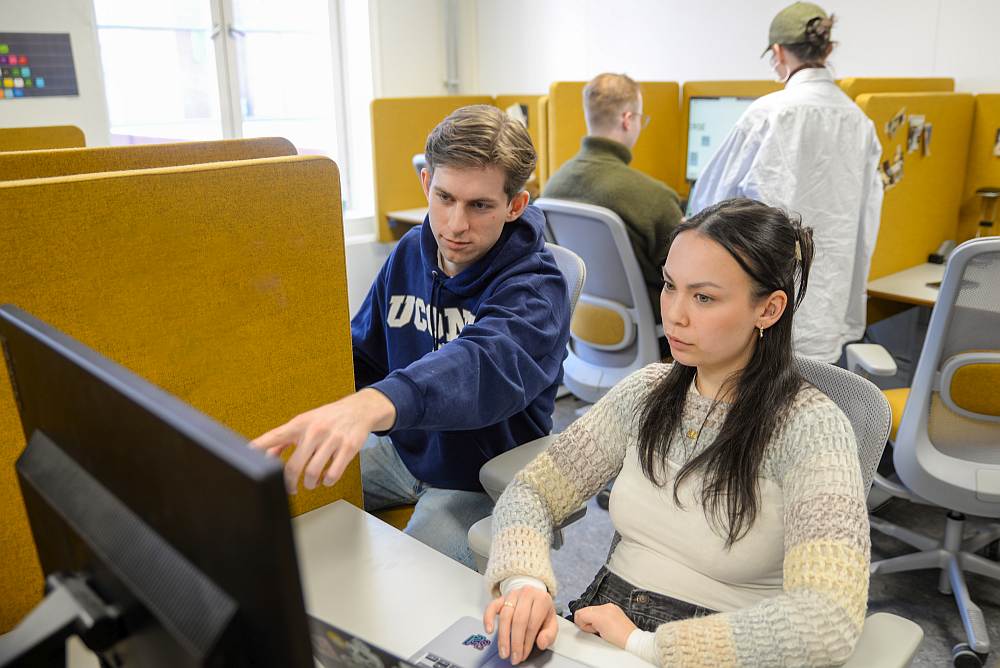What will I learn - Interaction Design - Master's Programme (2 years)
Master in Interaction Design
What will you learn?

Foto: Amanda Jørgine Haug
We are surrounded by technology in our everyday lives, in need of usable and user-friendly solutions. Digital interfaces and interactivity are everywhere, and it is of increasing importance that we ensure inclusive, intuitive and efficient human-computer interaction.
Brief outline
You will learn
- to put the users’ needs and requirements first
- knowledge and awareness of human factors and conditions in interaction and interface design.
- system design methodologies and strategies for the usability-optimalization of products and services.
- how to initiate, lead and perform usability engineering in research and development projects.
Major areas of study
- Usability and human factors
- User-oriented information architecture
- Strategies in user-centred design
See more about learning outcomes below:
Learning outcomes
Learning outcomes
Learning outcome
A candidate who has completed his or her qualification should have the following learning outcomes defined in terms of knowledge, skills and general competence:
Knowledge
The candidate...
- has thorough knowledge of scientific theory and methodology in the field of interaction design
- has an in-depth understanding of human factors and end-users' needs, user-centred strategies and methodologies and can discuss and reflect upon needs and requirements in the design of user interfaces and interactive environments
- is able to apply this knowledge to design and optimize the usability of products, services and interactive environments
- possesses a specialized and thorough knowledge of the research front on a limited and selected area forming the basis for the thesis in interaction design
Skills
The candidate…
- is able to analyze existing theories, methods and interpretations and to challenge established knowledge and practice with regards to interaction design
- is able to plan, initiate, manage and execute usability and user-centred research and development in an independent manner
- is able to carry out an independent, limited research or development project under supervision and in accordance with applicable ethical standards
- is able to analyze and reflect critically on various information sources and use them to structure and formulate scientific reasoning
- can promote innovative and sustainable design solutions for the benefit of societal development in a global perspective
General competencies
The candidate...
- is able to analyze ethical issues related to both profession and research
- is able to apply his/her knowledge and skills on novel areas to carry out advanced tasks and projects in usability or user-centered design
- is able to convey extensive work from an independent study and master the forms of expression in the field
- is able to communicate profession challenges and academic issues, analyses and conclusions within the field both to specialists and to the general public
- is able to contribute to innovative thinking and innovation processes
